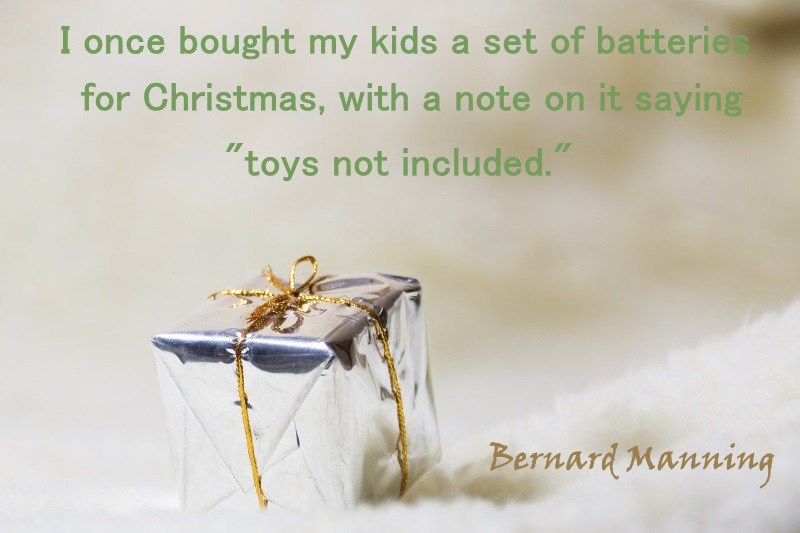They’re out there. In shopping malls, on snowy roads, mingling among the guests at your Christmas parties. You might have a few in your family, or among your colleagues. It’s the Three Scrooges. Those cranky, grumpy, onerous people who are determined to siphon your Christmas spirit and ruin your holiday cheers with their holiday jeers. Thankfully, they have been exposed. We at Queendom have carefully analyzed and studied their behaviors, and prepared a character description to help you identify and deal with these noxious curmudgeons.
After collecting and analyzing data from 6,452 individuals from the general population, three previously unknown subtypes of the “Scrooge” species have been discovered. Here’s a summary of their temperament:

Nickname/Alias: Downer McKilljoy
Typical phrases:
- “You think that’s bad? Here’s what happened to me…”
- “Life is hard” and “Life sucks”
- “Why me?”
What they’re like:
- Pessimistic; they expect the worst of people and situations
- Always talk about their aches, pains, and problems, often in a monotone voice
- Tend to drain the life out of a room and suck the fun out of everything
- May try to take vulnerable people down with them
- Evoke pity in some; others will distance themselves from their cloud of doom and gloom
- Don’t respond to cheering up, advice, or helpful solutions
- Have no problem expressing negative emotions
- So saturated with negativity that they don’t recognize opportunities for happiness and success
- Drawn to other pessimists (“Misery loves company”)
- Yet, cannot empathize with others because they are too caught up in their own emotions
What motivates their behavior:
- Sadness, fear
- Low EQ and low self-esteem
- A need for approval fueled by the desire to be understood and/or pitied
- A fatalistic approach to life and a victim mindset – they visualize the worst, but don’t necessarily prepare for it; they accept its inevitability
- An inability to learn from their experiences, leaving them feeling dis-empowered
How to deal with them:
- Offer sympathy; use the phrase “I understand” often
- Propose helpful suggestions, but only if asked
- Try to redirect the conversation to neutral topics
- Stay positive
- Remind yourself that their emotions are not your emotions

Nickname/Alias: Frosty Biter
Typical phrases:
- “Christmas is so commercialized.”
- “Look out for yourself because no one else will.”
- “Toughen up!”
What they’re like:
- Cynical
- Stoic, detached, cold
- Superior, high-brow, patronizing
- Disdainful of weakness, naiveté
- Understand people, but don’t care about them
- Harsh; they’ll poke at your vulnerabilities and take jabs at you
- May suck up to important people, but in a subtle way
- Indifferent to lower-ranked, un-influential people
- Don’t care if you dislike them, but may want to be respected by the right people
- Like to challenge you and draw you into intellectual debates
- If you insult them they will strike back verbally with painful precision
- Can channel their negative emotions into self-empowering actions (“You think I can’t? Watch me.”)
What motivates their behavior:
- Anger, spite, sense of unfairness, chip on their shoulder, maybe even hatred
- The belief that you have to be cruel in order to live in a cruel world
- A desire to prove themselves, to themselves
- A desire to prove that this world and others can’t bring them down
How to deal with them:
- Try not to take their jabs personally; recognize their purpose: To bait you
- Remain neutral; avoid controversial topics. Don’t try to change their point of view or “convert” them.
- If you choose to engage them in a debate, be prepared for a battle of wits; back your arguments with facts
- Be respectful, but don’t show vulnerability or weakness
- Remember, cynics see the world as unfair because they themselves have been treated unfairly. Be sympathetic, but don’t pity them – they won’t like it.

Nickname/Alias: Ornery in the Cornery
Typical phrases:
- “Life’s unfair.”
- “The world owes me.”
- “Why bother? It’s not going to make a difference.”
What they’re like:
- Cynical, pessimistic, cranky; only see or look for the worst in others
- Selfish, cheapskate – may have money, but don’t want to spend it, or will spend it strategically (e.g. to impress a high-ranked person)
- Rigid, inflexible; you won’t be able to change their mind
- Petty, confrontational
- Mock others’ opinions, or lack of knowledge; derisive of the weak
- Display superiority, but don’t feel superior deep down
- If disrespected, will shoot a volley of insults back at you
- Don’t trust people, but may not be trustworthy themselves
- Won’t give the benefit of the doubt or second chances
- Take joy in other people’s misfortunes
- Will respect power and success, but will secretly envy it and even hate someone for it
What motivates their behavior:
- Low EQ (the worst of the Three Scrooges)
- Low self-esteem (though they may hide it reasonably well)
- A high need for approval, fueled by self-loathing
- Contempt, jealousy
- A sense of powerless; an inability to cope with life’s challenges
How to deal with them:
- Understand that their scorn is a protective shield for their vulnerable ego. They need you to respect them because they don’t respect and like themselves.
- Beware: They will bring you down in order to feel better about themselves. Recognize it for what it is: A defense mechanism. Don’t take it personally.
- Don’t engage them in battle. It will be exhaustingly fruitless. Just hear them out, and use it as an opportunity to better understand their personality, desires, and motivations.
- Find an excuse to walk away if their behavior bothers you.
- You’ll have to work hard to earn their respect, but why bother? Their opinion shouldn’t matter to you.
I should probably make it clear that this study was meant as a tongue-in-cheek allegory, but it did bring to mind a very important lesson for the holiday season: If you want to get along with ornery family members, colleagues, and strangers, put yourself in their stockings. Try to fathom what might be motivating their callous behavior. When you can understand a negative person’s motives, desires, and fears, you’re less reactive, and less likely to get caught up in their mood. You’ll be more sympathetic and compassionate. Remember, the holidays aren’t jolly for everyone; they can bring out the worst in some people. Stay within the glow of your holiday spirit and don’t let their moods become your mood.
Happy Holidays!
Queen D


Bob Rich
Thanks for this. It gave me a good laugh. I am a fourth kind of Scrooge. You and your visitors may enjoy reading my take on Christmas: http://wp.me/p3Xihq-A9 I wish you contentment and joy every moment. Bob
Queen D
I didn't know there was a fourth, Bob! Will certainly check it out. Happy Holidays!